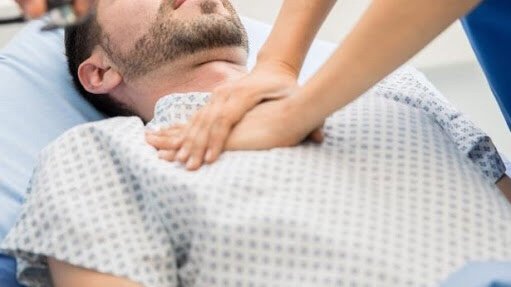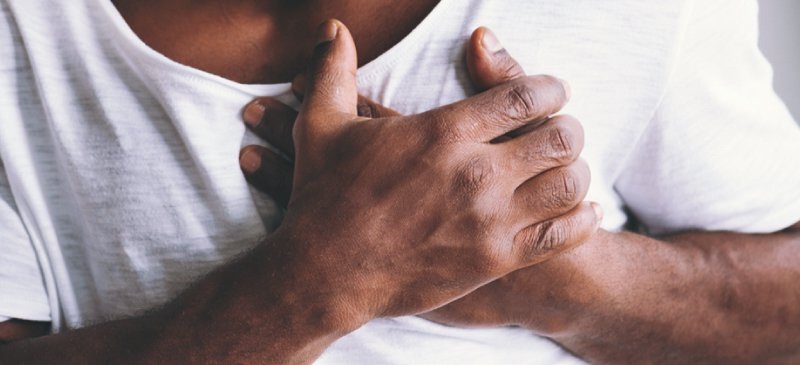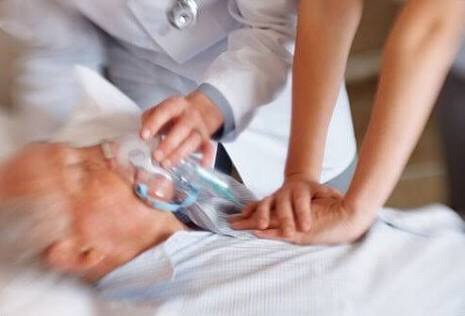Karl Wiggins recently got a relatively surprising diagnosis after he collapsed in his car. According to a source, Wiggins’ heart stopped but he was saved by a bystander who put a call through to 911 and did chest compressions till their arrival.
The doctors reportedly had to restart his heart several times and upon a consideration of his test, it was discovered that he had Brugada syndrome.
Brugada Syndrome
This syndrome is an uncommon heart disorder that leads to cardiac arrest and the effect can be deadly.
Samy Elayi, a medicine professor at the Gill Heart Institute, University of Kentucky, describes the syndrome as a genetic disorder that leads to the disruption of the normal rhythm of the heart. Although Wiggins was not the doctor’s patient, he treated brothers that had the same disorder about three years ago.

Dr. Elayi stated that the human heart is rightly a muscle and contracts with each beat. The contraction, according to the doctor, is made possible by an electrical signal. But for those with the syndrome, one of the electrical channels in the heart, particularly the channel responsible for conducting calcium and sodium, isn’t normal. The abnormality can, in turn, cause short circuits as well as abnormal rhythms.
The abnormal rhythms make it difficult for the heart to pump regularly. When this happens, it also means blood cannot get to the brain and the body at large. The effect of this leads to seizures, difficulty breathing, fainting and in a case where the heart completely stops, sudden death could occur.
Non-Respecter Of Race
The syndrome was reported for the first time by young Asian men and it is frequently found in Southeast Asian and Japanese populations as compared to people from other ethnic groups or races.

However, Dr. Elayi noted that this disorder can be seen in anybody. The doctor added that he had seen white people and African American who had the condition as well.
This syndrome as already mentioned is genetic. As such anybody who has a relative that had a sudden cardiac arrest, or suddenly died in a manner that cannot be explained may want to get tested.
Sources report that doctors have identified a gene mutation connected to the irregular heart rhythm of the syndrome. However, they found it only present in forty percent of patients confirmed to have Brugada. Dr. Elayi thus noted that they are yet to ascertain the cause genetically.
Treating Brugada Syndrome
The irregularities to the heart caused by this syndrome can happen anytime throughout a person’s life. Also, people can exhibit the symptoms linked to this syndrome at any age. Most times, the symptoms can be seen when a person is asleep or resting. However as evidenced by Wiggins’ case, the exhibition of the symptoms are not limited to just when a person is sleeping or resting.
Brugada syndrome in newborn babies sometimes causes the sudden infant death syndrome. The syndrome is, however, more commonly present in adults and sudden death from this disorder usually surfaces around the age of 40.
Some people who have this syndrome do not get diagnosed until they have sudden cardiac arrest and that may be a little too late.
The identification of the condition can only be done using electrocardiogram, and that is typically only performed in a case when a person has experienced shortness of breath, heart palpitations or any other arrhythmia symptom.
In a case where the doctors can successfully restart the patient’s heart after the first cardiac arrest, it will be possible for them to place a little defibrillator into the patient’s chest. The device has the ability to shock the heart into starting again should a similar irregular rhythm happen later.

Dr. Elayi added that the patient may become dizzy or even pass out for a couple of seconds when the heart experiences the irregular rhythm. However, the shock can wake them up.
He, however, added that there are people who experience this condition without having any dangerous symptoms. He added that the goal in their case is a prevention of cardiac arrest from taking place by consciously staying away from things and circumstances that could trigger it.
Triggers of the condition include certain medications like some types of anesthesia or antidepressant drugs. Also, having a high fever can lead to an irregular heart rhythm.
At the moment, there is no known cure for this condition. However, it is very possible for those with it to lead normal and healthy lives.
For such people, Dr. Elayi added that getting a defibrillator implanted can help to protect them against any future complication.




